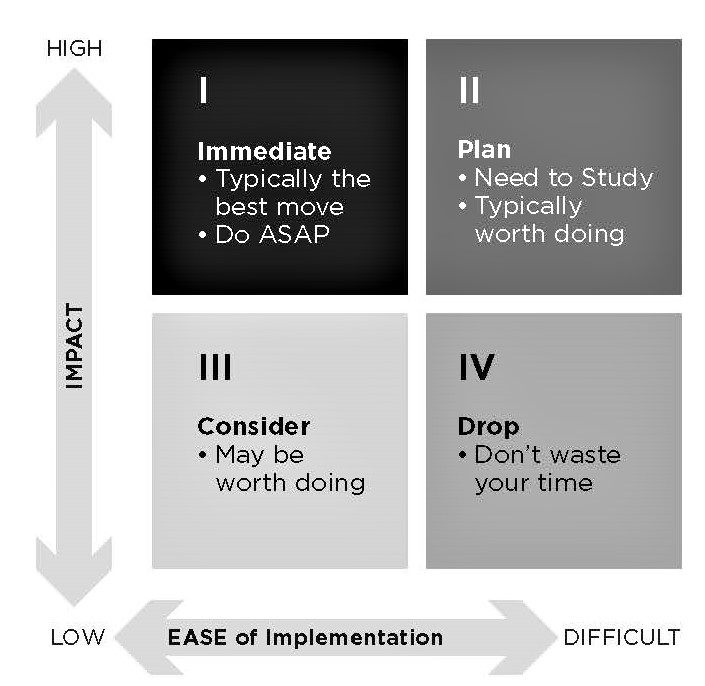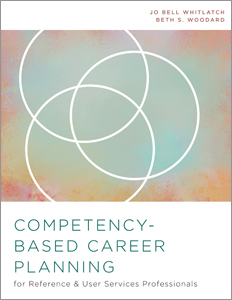An interview with Jo Bell Whitlatch and Beth S. Woodard on utilizing the RUSA Professional Competencies
Reference and user services librarians need to be in charge of their own careers. A new book by Jo Bell Whitlatch and Beth S. Woodard aims to help these practitioners do just that, using the RUSA (Reference and User Services Association) Professional Competencies as a framework for reflecting on strengths as well as gaps in expertise. As they discuss in this interview, they already had a long history of working together when it came time to write Competency-Based Career Planning for Reference and User Services Professionals. They also delve into how they approached adapting the Professional Competencies for book form and share some professional development ideas.
First, could you provide a little background on the Professional Competencies and how they came about?
Starting in the 1960’s, professions as well as other occupations increasingly focused on competency-based models of education, training and assessment as an alternative to personal characteristics and intelligence as a measure of human development, performance and overall success. Therefore in 1999, ALA began to develop core competencies for the profession — the knowledge, skills, abilities, and behaviors that librarians and other information professionals need. In 1993, RUSA had initiated the development of the Guidelines for Behavioral Performance of Reference and Information Services Professionals, which was approved by the RUSA Board in 1996. However, given the planning for the ALA Core Competencies, the RUSA Board determined in 2000 that a more comprehensive document covering all aspects of Reference Services (not just the reference transaction) was needed and appointed an Ad Hoc Committee. The first version of the Professional Competencies for Reference and User Services Librarians was approved by RUSA Board in 2003. After more than a decade, RUSA realized that the 2003 Professional Competencies required significant revisions. Also, ALA Council approved the ALA Core Competencies in 2009, enabling the new RUSA Task Force to build upon ALA’s Core Competencies of Librarianship, Section 5: Reference and User Services, which defines the basic knowledge to be possessed by all graduates of ALA-accredited master’s  programs. In 2017, RUSA Board approved the very significantly revised version of the RUSA Professional Competencies.
programs. In 2017, RUSA Board approved the very significantly revised version of the RUSA Professional Competencies.
What was the genesis of your collaboration on this book?
In the mid 1990s, we both served on the Evaluation of Reference and Adult Services Committee, which compiled and edited the Reference Assessment Manual (1995). The Manual was an unusually ambitious committee effort, which involved identifying and annotating reference evaluation instruments. After completing this project, we were able to appreciate the skills and knowledge of each committee member and knew that the two of us would have the complementary skills and knowledge for our book!
How did you approach adapting and expanding the Professional Competencies?
The RUSA Professional Competencies can be used as a library administrative tool to plan and organize staff development programs. But the Competencies can also be used by individual librarians to plan and implement an individual career development program. Taking charge of your career and planning your own development is definitely the focus of our book. We organized our book using the framework of the RUSA Professional Competencies, which covers seven topics: Access, Sources, Collaboration, Information Literacy, Marketing and Advocacy, Assessment, and Planning for the Future. Within each topic, after a general introduction to the topic, we identify major development methods in that area and assessment methods. Because we focus on librarians being in charge of their own careers, self-development and self-assessment are emphasized. The book includes many forms to assist librarians in planning their own career paths.
What are some ways that readers of the book might collaborate with colleagues outside their immediate purview to provide better services?
We have an entire chapter on Collaboration (chapter 3). We discuss developing and assessing collaborative relationships within the profession and beyond the library profession. In addition to joining local, national or international library  organizations and collaborating with colleagues in developing educational programs, professional standards, we suggest joining local, non-library organizations that have the potential to partner with the library to provide enhanced community services. For example, in the public arena, top priority goals in which local governments can play a role include access to high-speed internet service, digital literacy, early childhood education, primary and secondary school attainment, and online learning/virtual learning (see page 43 of our book). We provide forms to assess the match between potential partners and your library. Solo practitioners in isolated rural areas or those with limited budgets have many more options these days to connect with non-local colleagues or experts online or virtually.
organizations and collaborating with colleagues in developing educational programs, professional standards, we suggest joining local, non-library organizations that have the potential to partner with the library to provide enhanced community services. For example, in the public arena, top priority goals in which local governments can play a role include access to high-speed internet service, digital literacy, early childhood education, primary and secondary school attainment, and online learning/virtual learning (see page 43 of our book). We provide forms to assess the match between potential partners and your library. Solo practitioners in isolated rural areas or those with limited budgets have many more options these days to connect with non-local colleagues or experts online or virtually.
Lifelong learning is an important component of the Professional Competencies. Could you offer a few tips on how library workers can keep current and engaged with developments in the field?
Our chapter on Future Services (chapter 7), includes recommended best practices, such as developing a personal learning plan. Methods we recommend include (1) organizing or participating in a “community of practice” (p. 123-124), (2) participating in professional discussions and activities either virtually or in-person (with many tips on how to make your participation most effective), (3) environmental scanning; and (4) strategies for improving active learning competencies, for example, role-playing, field observation, teaching and task force projects. And, of course, ALA, and RUSA in particular, offers a nice variety of continuing education opportunities virtually like webinars and online courses that provide options for people who cannot travel or whose budgets do not allow the luxury of travel.
Learn more at the ALA Store.
